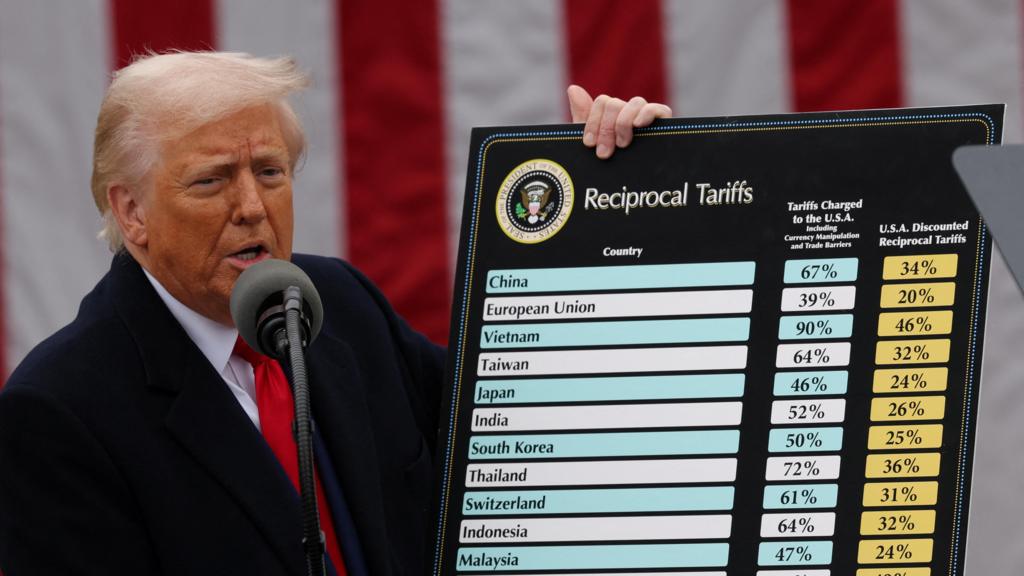
President Donald Trump has introduced a 10% tariff on the majority of goods imported into the U.S. escalating the global trade war. The move, aimed at addressing trade imbalances, has caused turmoil in global markets. Stock prices dropped in Asia and Europe, as investors sought safer options like bonds and gold. Trump’s decision also triggered criticism from several world leaders, marking the end of decades of trade liberalization.
The new tariffs hit China hard, with a 34% tax on imports, while Japan and the European Union face 24% and 20% duties, respectively. These tariffs are set to come into effect soon, and countries are considering retaliatory measures. U.S. Treasury Secretary Scott Bassett urged other nations not to escalate tensions, warning that further retaliation would lead to more U.S. tax hikes. Meanwhile, some allies, like Canada and Mexico, remain unaffected by the new tariffs.
Economists warn that the tariffs could slow global economic growth and raise living costs for American families. The effective U.S. import tax rate is expected to rise dramatically by 2024. Trump justifies the tariffs by claiming they will boost U.S. manufacturing jobs and correct unfair trade practices. However, experts predict that the move may trigger a global recession, affecting both developed and developing economies.
In response to the tariffs, the European Union is preparing countermeasures. Ursula von der Leyen, President of the European Commission, stated that the EU will protect its interests. The EU has already finalized retaliatory steps against U.S. steel tariffs. This growing trade conflict signals a shift in global economic dynamics, with many nations now looking to protect their markets.